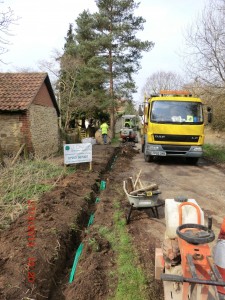Full-fibre ISPs are calling for action to qualify next-generation broadband service in the UK
Article
“Full Fibre” ISPs Call on ASA to Stop Misleading UK “Fibre Broadband” Adverts | ISP Review
My Comments
While the NBN are taking things slowly to roll out next-generation broadband Internet in to Australian communities and providing most with a fibre-copper service, the UK are facing a similar problem.
Most of urban Britain are being provisioned with similar fibre-copper next-generation broadband service, typically “fibre-to-the-cabinet” with a copper VDSL2 link between the street cabinet and the customer’s door. This is while a handful of ISPs and infrastructure providers like Gigaclear, Cityfibre and Hyperoptic are running fibre-to-the-premises next-generation broadband infrastructure, whether to country properties or large urban developments.
But a lot of telcos and ISPs are using the word “fibre” as part of hawking their next-generation broadband Internet product, while it is seen as a keyword by the marketers to say that the service will provide higher bandwidth to the customer than what was normally expected. This is although they are running a fibre-copper Internet service in most of their territories.
What is being raised is how should a broadband service be qualified in relationship to its infrastructure when the service is advertised to the public. It isn’t just about whether a service implements fibre to the premises or not, but how much of the run between the exchange or head-end and the customer’s premises is being covered by a fibre link.
There has to be distinct keywords to say that a service is being provided “fibre-to-the-premises”, a “majority-fibre” service like fibre-to-the-building or fibre-to-the-distribution-point, or a “minority-fibre” service like fibre-to-the-cabinet. Other issues that need to be raised is whether a service is being delivered with symmetrical (upload / download) bandwidth or is an “exclusive bandwidth” service like active fibre where each customer gets the full contracted bandwidth rather than facing bandwidth contention.
What Gigaclear and co are raising is that customers need to know what they are able to get when they sign up for a next-generation broadband Internet service or other advanced telecommunications service.



